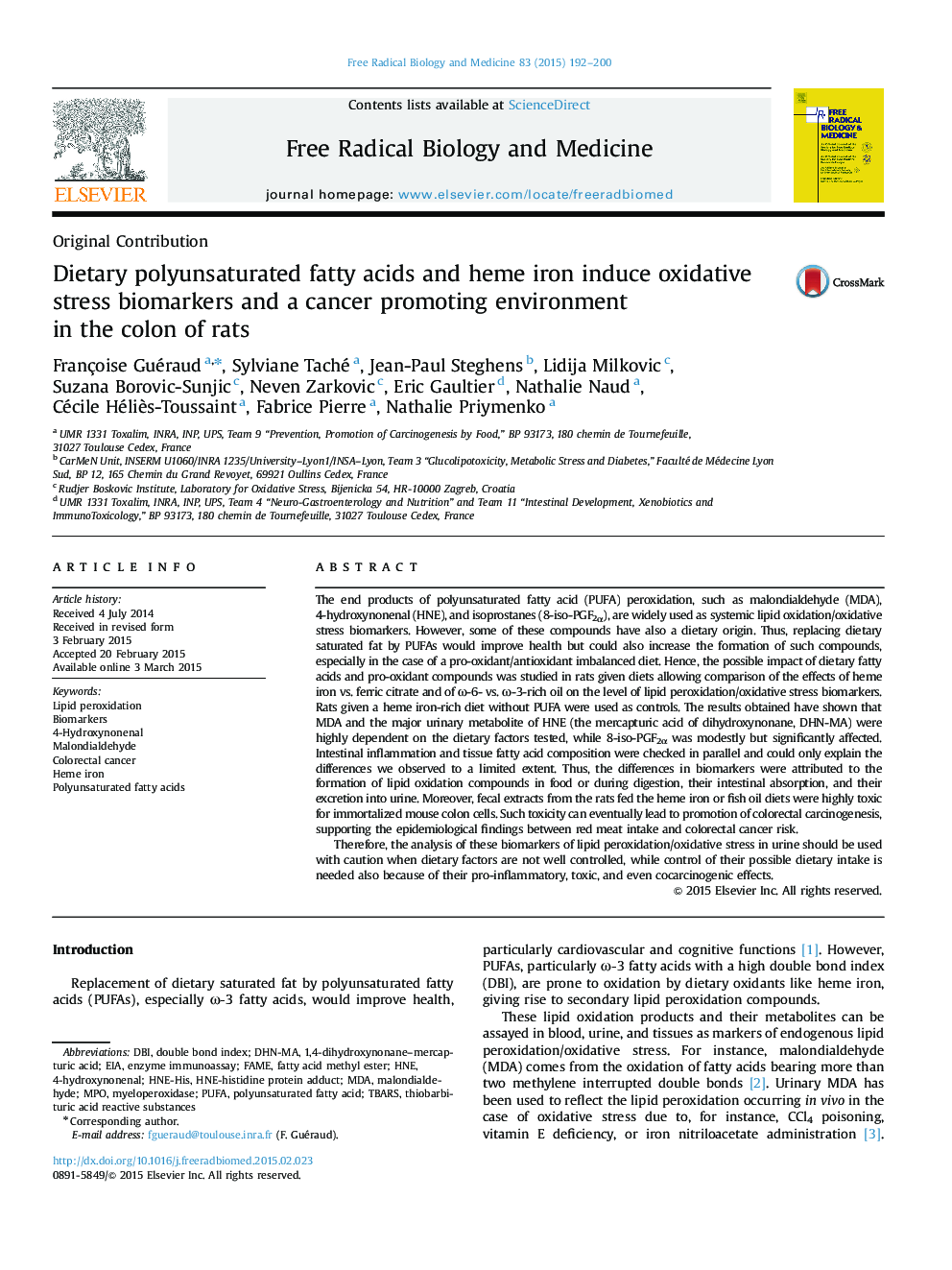| کد مقاله | کد نشریه | سال انتشار | مقاله انگلیسی | نسخه تمام متن |
|---|---|---|---|---|
| 1907965 | 1534959 | 2015 | 9 صفحه PDF | دانلود رایگان |
• A 130-fold increase in urinary MDA with heme iron and fish oil-rich diet.
• A 300-fold increase in urinary DHN-MA with heme iron and safflower oil-rich diet.
• 8-iso-PGF2α urinary excretion is increased with heme iron-rich diets.
• Fecal extracts from heme iron/PUFA-fed rats are cytotoxic to intestinal cell lines.
The end products of polyunsaturated fatty acid (PUFA) peroxidation, such as malondialdehyde (MDA), 4-hydroxynonenal (HNE), and isoprostanes (8-iso-PGF2α), are widely used as systemic lipid oxidation/oxidative stress biomarkers. However, some of these compounds have also a dietary origin. Thus, replacing dietary saturated fat by PUFAs would improve health but could also increase the formation of such compounds, especially in the case of a pro-oxidant/antioxidant imbalanced diet. Hence, the possible impact of dietary fatty acids and pro-oxidant compounds was studied in rats given diets allowing comparison of the effects of heme iron vs. ferric citrate and of ω-6- vs. ω-3-rich oil on the level of lipid peroxidation/oxidative stress biomarkers. Rats given a heme iron-rich diet without PUFA were used as controls. The results obtained have shown that MDA and the major urinary metabolite of HNE (the mercapturic acid of dihydroxynonane, DHN-MA) were highly dependent on the dietary factors tested, while 8-iso-PGF2α was modestly but significantly affected. Intestinal inflammation and tissue fatty acid composition were checked in parallel and could only explain the differences we observed to a limited extent. Thus, the differences in biomarkers were attributed to the formation of lipid oxidation compounds in food or during digestion, their intestinal absorption, and their excretion into urine. Moreover, fecal extracts from the rats fed the heme iron or fish oil diets were highly toxic for immortalized mouse colon cells. Such toxicity can eventually lead to promotion of colorectal carcinogenesis, supporting the epidemiological findings between red meat intake and colorectal cancer risk.Therefore, the analysis of these biomarkers of lipid peroxidation/oxidative stress in urine should be used with caution when dietary factors are not well controlled, while control of their possible dietary intake is needed also because of their pro-inflammatory, toxic, and even cocarcinogenic effects.
Figure optionsDownload high-quality image (134 K)Download as PowerPoint slide
Journal: Free Radical Biology and Medicine - Volume 83, June 2015, Pages 192–200
